
Rainforest Action Network (RAN) is an environmental organization based in San Francisco, California, United States. The organization was founded by Randy "Hurricane" Hayes and Mike Roselle in 1985, and first gained national prominence with a grassroots organizing campaign that in 1987 succeeded in convincing Burger King to cancel $31 million worth of destructive Central American rainforest beef contracts. Protecting forests and challenging corporate power has remained a key focus of RAN’s campaigns since, and has led RAN into campaigns that have led to transformative policy changes across home building, wood purchasing and supplying, automobile, fashion, paper and banking industries.
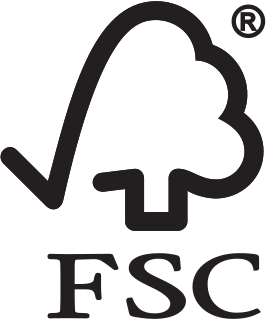
The Forest Stewardship Council A. C. (FSC) is an international non-profit, multistakeholder organization established in 1993 that promotes responsible management of the world's forests, via timber certification. It is an example of a market-based certification program used as a transnational environmental policy.

Tropical rainforests are rainforests that occur in areas of tropical rainforest climate in which there is no dry season – all months have an average precipitation of at least 60 mm – and may also be referred to as lowland equatorial evergreen rainforest. True rainforests are typically found between 10 degrees north and south of the equator ; they are a sub-set of the tropical forest biome that occurs roughly within the 28-degree latitudes. Within the World Wildlife Fund's biome classification, tropical rainforests are a type of tropical moist broadleaf forest that also includes the more extensive seasonal tropical forests.

The Rainforest Foundation Fund is a charitable foundation founded in 1987 and dedicated to drawing attention to rainforests and defending the rights of indigenous peoples living there.
The Forest Movement Europe (FME) is a grouping of more than 45 NGOs from 12 European countries working on forest issues. The movement has been in existence, although under different names, for more than 15 years. Its purpose is to share information, to develop joint strategies and a wider European perspective on forest issues. The FME also supports NGOs and Indigenous Peoples Organisations in the South in their activities to protect forests.

HeidelbergCement is a German multinational building materials company headquartered in Heidelberg, Germany. It is a DAX corporation and is one of the largest building materials companies in the world. On 1 July 2016, HeidelbergCement AG completed the acquisition of a 45% shareholding in Italcementi. That acquisition made HeidelbergCement the number one producer of construction aggregates, the number 2 in cement and number 3 in ready mixed concrete worldwide. In the 2020 Forbes Global 2000, HeidelbergCement was ranked as the 678th -largest public company in the world.
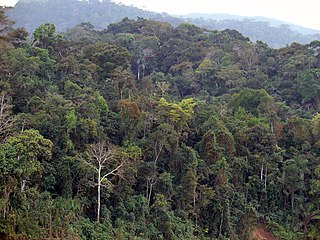
Peruvian Amazonia is the area of the Amazon rainforest included within the country of Peru, from east of the Andes to the borders with Ecuador, Colombia, Brazil and Bolivia. This region comprises 60% of the country and is marked by a large degree of biodiversity. Peru has the second-largest portion of the Amazon rainforest after the Brazilian Amazon.

Dr. Martín von Hildebrand is an ethnologist and anthropologist who has led efforts to secure indigenous territorial rights and the protection of the Colombian Amazon tropical forest. He has been awarded the Right Livelihood Award, the Skoll Award for Social Entrepreneurship and The Order of the Golden Ark in recognition of his work with Fundacion Gaia Amazonas and the COAMA program.

The World Rainforest Movement (WRM) is an international initiative created to strengthen the global movement in defense of forests, in order to fight deforestation and forest degradation. It was founded in 1986 by activists from around the world.
Fern is a Dutch foundation created in 1995. It is an international Non-Governmental Organization (NGO) set up to keep track of the European Union's involvement in forests and coordinate NGO activities at the European level. Fern works to protect forests and the rights of people who depend on them.

Amazon Watch is a nonprofit organization founded in 1996, and based in Oakland, California, it works to protect the rainforest and advance the rights of indigenous peoples in the Amazon Basin. It partners with indigenous and environmental organizations in Ecuador, Peru, Colombia and Brazil in campaigns for human rights, corporate accountability and the preservation of the Amazon's ecological systems.
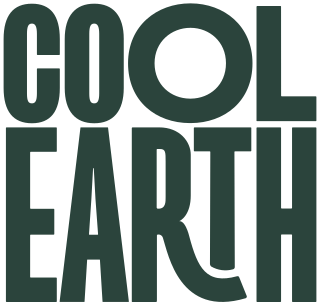
Cool Earth is a UK-based international NGO that protects endangered rainforest in order to combat global warming, protect ecosystems and to provide employment for local people.
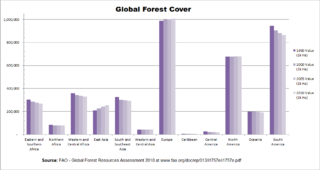
Rates and causes of deforestation vary from region to region around the world. In 2009, 2/3 of the world's forests were located in just 10 countries: 1) Russia, 2) Brazil, 3) Canada, 4) The United States, 5) China, 6) Australia, 7) The Democratic Republic of the Congo, 8) Indonesia, 9) India, and 10) Peru.
This article addresses various criticisms of Cargill Inc, a privately held "agribusiness" multinational giant" with operations in 70 countries, and its headquarters in Minneapolis, Minnesota, in the United States. Cargill Inc, which has been owned by the Cargill family for 154 years, is the largest privately owned corporation in the United States, with an annual revenue of $113.5 billion in 2019.
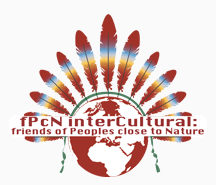
Rettet die Naturvölker, also known as Friends of People Close to Nature (fPcN) or fPcN interCultural, founded in Ludwigslust in 1991 as Freunde der Naturvölker, is a non-governmental European human rights organization that works in the field of indigenous rights. Campaigns are carried out on a global level, with members traveling to East Africa, the Amazon Rainforest and the Philippines.
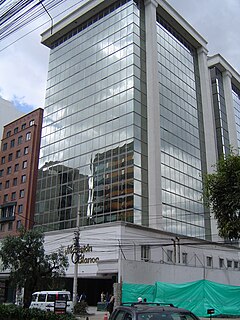
Corriente Resources was a multinational corporation based in Canada that completed feasibility studies and environmental impact assessments (EIA) for open-pit copper mines in the Ecuadorian rainforest, including the Mirador mine. The Mirador mine is the first industrial scale copper mine to be developed in Ecuador. Corriente Resources also completed explorations of the San Carlos Panantza mine, although development of that project was halted in 2020 by Indigenous opposition.
The Rainforest Foundation UK (RFUK) is a non-profit NGO working in Africa and South America. It is one of the first international organizations to support the indigenous peoples of the world's rainforests in their efforts to protect their environment and fulfill their rights to land, life and livelihood. The Foundation aims to protect rainforests by securing the land rights of indigenous peoples and other forest-dependent communities. It also campaigns internationally on issues such as industrial logging, climate change, agricultural expansion and nature conservation.
Rainforest Foundation Norway (RFN) is a non-governmental organization (NGO) working to protect the world's rainforests and to secure the legal rights of their inhabitants. It is one of the largest rainforest organizations in the world, and collaborates with around 70 local and national environmental, indigenous and human rights organizations in 7 rainforest countries in the Amazon region, Central Africa and Southeast Asia. The organization works to support people in securing their rights and increase people's level of commitment to rainforest protection; to prevent policy and business interests from contributing to the destruction of the rainforest; and to consolidate policy and practice that serve to protect it. RFN engages in advocacy work in key international processes concerning rainforest issues.

Intag is a remote, partly mountainous area in Cotacachi Canton and Otavalo Canton Imbabura Province, Ecuador, named for the Intag river. It includes Intag Cloud Forest Reserve, which has primary cloud forest at 1800–2800 m and a high biodiversity. Cotacachi Cayapas Ecological Reserve borders to the North.

The banana industry is an important part of the global industrial agrobusiness. About 15% of the global banana production goes to export and international trade for consumption in Western countries. They are grown on banana plantations primarily in the Americas.














